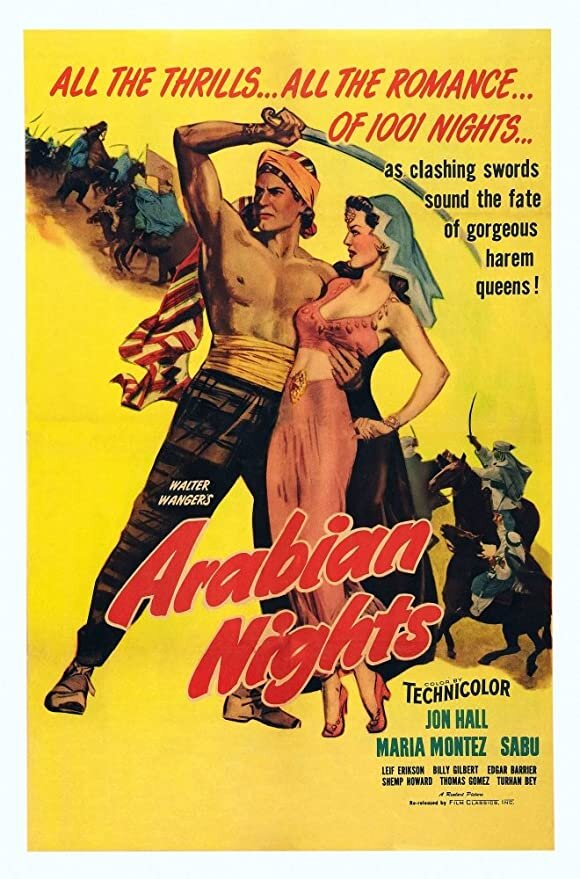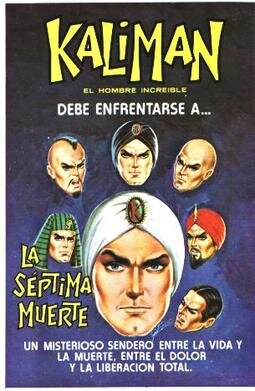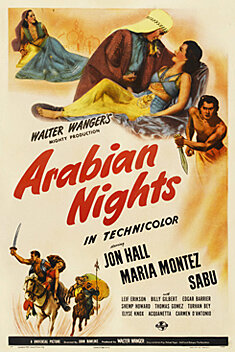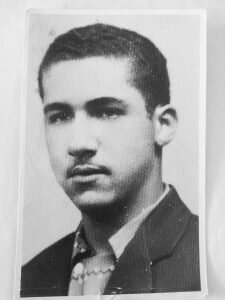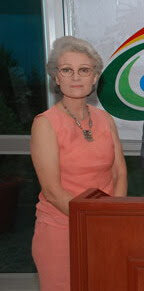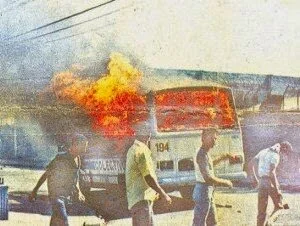By Amaury Rodríguez and Nelson Santana
March 25, 2020
Fifth in a series of articles that focus on research of Dominican history and society.
The year 2020 has been transformative for the Dominican Republic as a new protest movement emerges to confront corrupt politicians and business as usual. Meanwhile, we at ESENDOM came up with twenty research ideas on a wide range of themes that illustrate the present moment, the evolution of Dominican society in the past two decades as well as those understudied aspects of society that generate more questions than answers.
Note: At the time of editing, a new pandemic hit the world. We encourage those interested in research and study to use online academic sources for the time being.
Screenshot of the FUNGLODE web site by ESENDOM.
1.Silencing the Word: FUNGLODE and the Co-optation of the Intellectual Class
Since the year 2000 when former President Leonel Fernández founded Fundación Global Democracia y Desarrollo (FUNGLODE, Global Foundation for Democracy), a number of artists, writers and scholars—to be honest, for the most part scholars— in the Dominican Republic and abroad have gravitated toward the neoliberal think-tank. And despite a track-record as a reactionary political figure, collaboration with the conservative Dominican politician was ongoing, a fact that speaks a great deal about some sectors of the intellectual class who remained silent—and still do to this day— in the face of state repression, xenophobia, racism, homophobia and sexism.
Leonel Fernández’s appalling record as a head of state is in the public record for all to see. One can just rewind to 1996 for a look at the racist campaign against José Francisco Peña Gómez, a popular Dominican politician of Haitian descent and humble origins. That racist campaign was the product of an alliance between the Dominican right (represented by Joaquín Balaguer and Vincho Castillo) and the leadership of the governing Dominican Liberation Party (PLD). (Fernández’s resignation from the PLD split the PLD in two. But not much changed: Both the PLD and Fernández’s followers remain committed to a reactionary, ultra-conservative agenda.)
“FUNGLODE continues to enjoy a certain appeal and prestige for artists, writers and specially scholars.”
Again, for more proof of Fernández’s reactionary politics let’s look back at the year 2010. In 2010 his administration enacted one of the most conservative constitutions in the Americas. Not only did the 2010 constitution ban abortion and same-sex marriage, but it eliminated birthright citizenship for the children of Haitian immigrants. It was a tragic year indeed.
The mystery remains after all the evidence have been laid down on the table FUNGLODE continues to enjoy a certain appeal and prestige for artists, writers and specially scholars.
This research will investigate the role of former President Leonel Fernández and FUNGLODE in co-opting artists, writers and intellectuals from the Dominican Republic and abroad. The research will ask the following questions
What has prevented many liberal intellectuals from severing ties with Leonel Fernández and his foundation FUNGLODE?
What role does private funding play in self-censorship and co-optation of intellectuals and those in the arts?
In terms of cultural production, what has been the contribution of Revista Global, a journal published by FUNGLODE? Has FUNGLODE’s magazine taken a conservative approach to Dominican culture and the arts?
Since FUNGLODE is a neoliberal think tank that functions to promote the free-market, what role do artists, writers and other intellectuals play in this endeavor?
What are some of the ideological challenges to the cultural hegemony under PLD governments and FUNGLODE?
2.The Politicization of Evangelicals in the Dominican Republic
Religion and politics go together like horse and carriage. In the Dominican Republic, there is a long tradition of established religion working as an arm of political interest groups. This has always been the case with the Catholic Church.
It was not long ago when evangelicals in the Dominican Republic stayed away from politics. Recently, some sections of the evangelical milieu have formed their own political bloc. Unfortunately, that political activism has embraced a right-wing ideological framework instead of embracing the most progressive aspects of Christianity such as welcoming immigrants. In this research, we will look at the role of evangelicals in pushing a socio-conservative agenda that includes an aversion to progressive issues such as women’s equality and reproductive justice, same-sex relationships and immigrant rights.
3. Juan Luis Guerra and the Mainstreaming of Christian Music
Although many people may believe that the marriage between music and religion is a new and growing movement in the Dominican Republic, this is not an accurate statement. Music has always been a crucial component of religion. Within Christianity, music has been one of its most important pillars. In recent years, mega superstar Juan Luis Guerra has embraced the Christian faith a little more than when he first burst onto the music scene. This study will examine Juan Luis Guerra’s role in popularizing the music genre known as Christian music in the Dominican Republic.
4. Orientalism in Santo Domingo
This study looks at visual representation of Arab and Asian people as well as non-Hispanic sources of racism and patriarchal ideas such as Hollywood orientalist films. Dominican-born Maria Montez—labeled the “Queen of Technicolor”—glazed the silver screen during the 1940s and 1950s, thus becoming one of the earliest Hollywood successes with Dominican ancestry. This study looks at visual representation and non-Hispanic sources of racism and patriarchal ideas such as Hollywood orientalist films—starring Dominican-born Maria Montez—as well as the widely-distributed Mexican comic book Kalimán.
5. Mariachi-bachata: Mexican Music in Dominican Consciousness
Since its rise, Mexican music has served as the gold standard, consumed not only in Mexico but throughout Latin America and beyond. Rancheras and other Mexican music have shaped and influenced the music in other countries and the Dominican Republic is no exception. How and when did Dominican musicians embrace mariachi as a source of inspiration? This study aims to answer that question and more.
6. Anime and Dominican Youth
This study examines the impact of anime and Japanese culture in Dominican society. The popularity of anime among Dominican youth is a testament to the fluidity of Dominican and Caribbean identity. The study will explore popular aspects of cultural production from Japan and its appeal to Caribbean and Latin American youth.
7. Lucha libre in Villa Juana: A Case Study in Sports and State Violence
This study traces the origins of lucha libre events in public spaces in a working- class neighborhood in the 1970s during the repressive Balaguer regime. While conducting oral history interviews with participants and fans, researchers should think about the monopolization of violence by the nation-state and violence as spectacle and entertainment.
8. Sexual Dissidents under Trujillo
Since the late 1990s, the research with regard to Dominican sexuality has increased, yet not at the pace of other areas of inquiry. The Dominican Republic under the 31-year dictatorship of Rafael Leonidas Trujillo Molina produced many stories that contradict standard narratives. Buried within these contradictory narratives one will find stories about the lives and legacies of sexual dissidents in the Caribbean nation. Researchers will study the lives and legacies of sexual dissidents from gay people to trans people and sex workers in the midst of the Trujillo dictatorship.
9. Centro León and the Making of an Art Scene
Centro León under construction. Source: Centro León website
This is a study on a privately funded cultural center and museum in the Cibao region. The research will look at the impact private cultural institutions have on artistic education and cultural production.
10. Foreign-born Intellectuals in Dominican Society
In this study, researchers will dig deeper into the role of foreign-born intellectuals and the making of Dominican society. The idea is to study the lives, legacies and contributions of those who came and stayed, contributing in the process, to the construction of a more open and pluralistic society. Among some of the case studies will be those of South American intellectuals like the Venezuelan Rufino-Blanco Fombona; Spanish Republican refugees like the artist couple Amparo Segarra and Eugenio Granell, Haitian intellectuals like the poet and revolutionary martyr Jacques Viau Renaud; and the Argentinian-born artist and writer Graciela Azcárate.
11. Pelas Coloniales: Children and Corporal Punishment in Santo Domingo
A study on corporal punishment of children in the Dominican Republic. One of the goals is to trace the use of corporal punishment to colonial society and further back, to pre-capitalist times. One of the questions to consider is how does religion play into the prevalence of corporal punishment? The study will dig deeper into corporal punishment, social control, the institution of slavery and finally, corporal punishment and its repercussions on women and children.
12. Sports, Racism and Dominicanidad: Dominico-Haitian and West Indian Athletes
Dominican-Haitian Taekwondo fighter Luís Pie. Source: Acento
A study on Dominican athletes of Haitian descent and West Indian descent. In the past, Dominican-Haitian and West-Indian athletes would be hesitant to reveal their heritage due to racism and marginalization. Today, even though racism and racist policies persist, Dominican society is more open. This cultural shift was due in part to the tireless work of civil rights activism led by the late Sonia Pierre and others, emboldening athletes to feel pride for their Haitian heritage. This research will look at the sport careers of athletes such as basketball players Trevor Ariza and Al and Tito Horford, Luís Pie, Yandel Gutave, Miguel Sanó, Juan Senreiso, Alberto Lois, Maximo Nelson, Félix Pie, Julián Yan, Eduardo Denni, Adolfo Joseph, Miguel Sanfren among others.
13. Dominican jisters and the Making of a Middle Class
Hipster culture is an American export that exists outside the US albeit with minor local characteristics. In the Dominican Republic, a hipster or jister culture developed as a result of newfound riches of lower and middle class sectors. Dominican jisters, like hipsters in the US, exists as consumers of hipster culture: cultural motifs such as indie music, films, literature, comics, skateboarding among others. The study will explore the cultural milieu of Dominican jisters and the role of transnationalism on spreading cultural trends.
14. The Heights and Lows of Altos de Chavón
A study on an art school funded with transnational capital that offers a canonic, Western and colonialist vision of artistic creation more in tandem with consumerism and the international art market. This study will look at issues of gender, race and class.
15. Blanquitos y Mesías: Peace Corps, NGOs and Co-optation of Social Protest
Source: The Rag, Vol 1, Issue 17, 3/6/1967 via Independent Voices
Sometimes good intentions are not enough. Since the defeat of the 1965 revolution, the presence of Peace Corps volunteers and NGOs have kept alive charity as a means to help the poor. The following are some questions to consider while conducting research:
What has been the impact of the NGOs and Peace Corps volunteers?
What role do US-volunteers play in the demobilization of social protest?
What kind of dependency do NGOs and Peace Corps volunteer create as they funnel resources into social justice organizations?
How do NGOs and Peace Corps volunteers legitimate the state?
16. Sonia Pierre and the Making of a Civil Rights Movement
A study on Sonia Pierre’s contributions to the struggle for immigrant rights and civil rights for Dominicans of Haitian origin. Researchers will conduct fieldwork through oral history with Dominico-Haitian as well as Dominicans of other ethnic origins, Haitian immigrant women and men. The study will touch upon legal and political themes as well as issues of gender discrimination, racism, xenophobia and unfair labor practices within the sugar cane industry among others. Moreover, the study will chart Sonia Pierre’s activism as a feminist and fighter for democratic rights for all Dominicans.
17. Hare Krishna in Dominican Society
A study on the small but visible members of the Hare Krishna movement in the Dominican Republic. The research will look into the role of middle class ideology, disenchantment with Catholicism and other brands of Christianity, personal stories of current and former Hare Krishna members, countercultural strands in Dominican society and the impact of immigration and transnationalism.
18. Islam in Santo Domingo
This study investigates the arrival of the Islamic faith during the colonial era and it will look into the Muslim community in present-day Dominican Republic. As part of the study, researchers will interview recent medical student arrivals to Santo Domingo from Iran, Africa, India and other regions. Researchers will conduct interviews with adherents to Islam and build a digital database by scrutinizing colonial sources from Spanish Santo Domingo and other colonial outposts in the Americas. This study will explore issues of gender, class and race. Further, it will dig deeper into the African heritage of the country.
19. Ediciones de la Crisis, Independent Publishing and the Libro Dominicano
This is a study on independent publishing and survival as an artist, publisher and book lover in a country with no major publishing house and little or no institutional support from the state and universities. This monograph will center on the ongoing work of Miguel D. Mena, who in the 1980s launched Ediciones de la crisis, a name that somehow refers to the political and social crisis of the era. Researchers will explore the following themes:
• DIY (Do-It-Yourself) publishing and ethics
• Dissident culture and/or alternative culture
• Artisanal books and book-making
• Punk culture
• Mimeographs, Xeroxed publications
• Cultural openings in the 80s
• The role of left-wing artists and writers in fostering dissent
• Poetry and poetic experimentation
20. Plagiarism of Dominican Appropriation
To the outsider, Dominican culture is enticing—often mimicked and fetishized. Individuals such as El Tiguere Vacano are part of a long history of Dominican cultural appropriation. In the late 2000s MamaJuana Energy Drink made its debut, clearly capitalizing on the popular Dominican drink of the same name. This research project will examine the appropriation of Dominican culture by non-Dominicans. The study will also tackle the question of whether or not there is any unethical component.
Related
Ten Research Ideas About Dominicans That You Should Pursue (Part 1)
Fifteen Research Ideas About Dominicans That You Should Pursue (Part 2)
Eight Research Ideas about Dominicans That You Should Pursue (Part 3)
Three Research Ideas About Dominicans That You Should Pursue (Part 4)

